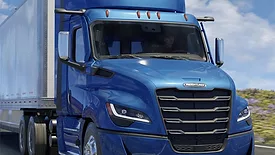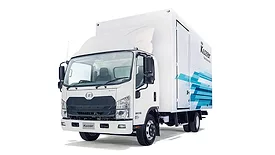ARTICLES
Vehicles can help fleets attract, retain a broader workforce
Read More
Engine-makers developing new platforms to support 2027 emissions standard
Cummins, Daimler Truck and Volvo Trucks among OEMs offering solutions
December 30, 2025
2026 Trucks Report: Safety, sustainability and strategic alliances drive innovation
Delivery truck OEMs offer a little something for everyone with new models
December 4, 2025
Manufacturers update light-duty truck roster
Light-duty trucks remain a key component of delivery fleets
November 4, 2025
EV infrastructure grants re-released
Federal government un-freezes funds earmarked for states to expand EV charging infrastructure
October 2, 2025
Technology, basic common sense can reduce idle time
Fact sheets ‘Work Truck Idling Reduction’ offer fleets tips for idle reduction
September 4, 2025
Where do things stand with renewable fuels?
Green fuels update details advancement with non-electric options
August 5, 2025
Despite emergence of eco-friendly alternatives, diesel remains the dominant fuel
Diesel can play a critical role in beverage operation’s sustainability efforts
July 8, 2025
Load optimization gets an AI assist in beverage delivery
Artificial intelligence works with strategy, still requires human intelligence
June 5, 2025
Federal government fortifies its anti-distracted-driving message
‘Put the Phone Away or Pay’ campaign reminds drivers of distracted driving dangers
May 5, 2025
Elevate your expertise in the beverage marketplace with unparalleled insights and connections.
Join thousands of beverage professionals today. Shouldn’t you know what they know?
JOIN NOW!Copyright ©2026. All Rights Reserved BNP Media.
Design, CMS, Hosting & Web Development :: ePublishing


